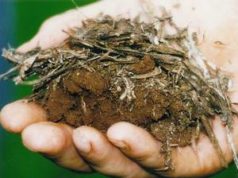Summary Soil acidity is major problem in north-eastern region. Poor crop productivity and soil fertility in acidic soils are mainly due to combinations of aluminium and manganese toxicities and nutrient deficiencies including P, Ca, Mg and K etc.Among these problems, aluminium toxicity is the main growth limiting factor and the toxicity is severe below pH 5.5. Seed germination is well established under Al toxic soils.The initial and most dramatic symptom of aluminium toxicity is the inhibition of root growth resulting in nutrient deficiency, leaf disorder, poor plant growth and yield.Tomato and garden pea is considered sensitive and French bean is tolerant against aluminium toxicity.
Introduction
Soil acidity is a serious impediment in vegetable cultivation in India. In India acidic soils which occupy about 49 million hectares of which 25 million ha have pH below 5.5. Majority of the acid soil region of our country lies under north-eastern region and covers about 95%.
The fertility of these soils is very low due to toxicities of aluminium, manganese and deficiencies of phosphorus, calcium, magnesium and potassium etc. Among these problems, aluminium toxicity is a major growth limiting factors in acidic soils and the problem is particular severe below pH 5.5.
The problem of aluminium toxicity can be solved by the use of liming and growing of aluminium tolerant genotypes. However, farmers of developing countries can not afford cost of liming and impractical for wide areas. Under such situations, a more sustainable solution would be to select aluminium tolerant genotypes for use in acidic soils, which in the long run, is less expensive, sustainable and more environmentally friendly.
A systematic work on these aspects was initiated in 2004 to 2006 in the Department of Plant Breeding and Genetics, College of Horticulture and Forestry, Central Agricultural University, Pasighat and lot of data has been generated on different aspects with special reference to morphological, physiological and biochemical parameters.
Effects on germination, roots, stem and leaves
Germination: Seed germination is well established under Al toxic soils. Al does not hinder the seed germination but does inhibit the emerging roots and seedling establishments.
Roots: Aluminium toxicity symptoms first expressed in the roots. Al toxicity inhibits root cell division and elongation thus the roots are short, stubby and lateral roots became peg-like or fail to develop and the whole root system fails to elongate.
Seedlings roots are brittle brown in colour and occasionally necrotic and inefficient in uptake nutrients and water, consequently resulting in poorer plant growth and yield. In some cases, whole root system appears lack fine branching and corraloid in appearance.
Leaves and stems: Shoot growth is often considered a secondary visible symptom of aluminium toxicity. In the absence of aluminium, all plants grew well and there were no visible symptoms of nutrient deficiency.
In the presence of aluminium, leaves of tomato genotypes showed purple colour in petioles, abaxial leaf surfaces and stems resembling phosphorus deficiency. In contrast, aluminium toxicity symptoms were not visible in French bean and garden pea.
Crop plants usually have smaller leaves, decreased number of leaves and decreased leaf area.
Tolerance to aluminium toxicity: Relative aluminium tolerance of tomato, garden pea and French bean crops has been studied and found that tomato and garden pea is considered sensitive and French bean is tolerant at certain level of aluminium toxicity.
Table 1. Relative aluminium tolerance of different vegetable crops (based on 50% reduction in growth over control)
_____________________________________________
(Aluminium in ppm)
Upto 10 Upto 30
______________________________________________
Garden pea French bean
tomato
______________________________________________
Table 2. Comparatively aluminium tolerant varieties/line
_______________________________________________________
S.No. Crop varieties/line
_______________________________________________________
- Garden pea PC-55-11-1-2, Azad P1 and AzadP3
- French bean Contender, RCFB-31A, RCFB-43
- Tomato Pant Bahar
_______________________________________________________
Table 3. Ideal pH for tomato, pea and French bean crops
_______________________________________________________
Crop pH range
____________________________________________________________
Tomato 6.0-7.0
Pea 6.0-6.5
French bean 5.5-6.0
____________________________________________________________
By:
Dharmendra Singh1, Rajendra Singh2 and Mahendra Singh3
- Division of Genetics, Indian Agricultural Research Institute, New Delhi-12
- Water Technology Centre, Indian Agricultural Research Institute, New Delhi-12
- Centre for Agricultural Technology Assessment and Transfer, Indian Agricultural Research Institute, New Delhi-12








